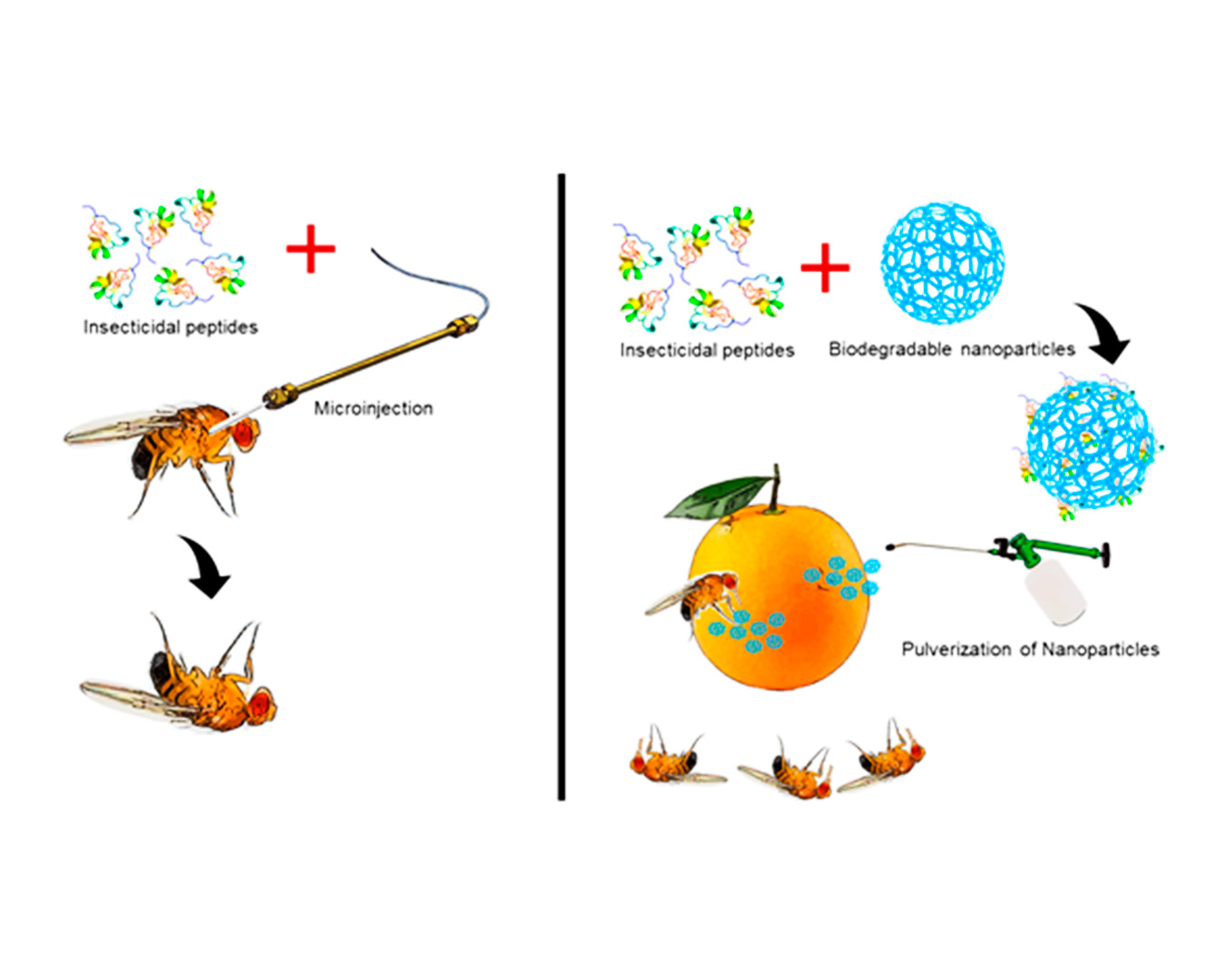
| Acronym: | NanoNema |
| Cost Center: | 840 |
| Operation Code: | ACORES-01-0145-FEDER-000113 |
| Title: | NanoNema: Formulation of a nanoinsecticide based on insecticidal peptides secreted by an entomopathogenic agent |
| Start-End: | 01-03-2019 - 30-04-2023 |
| Entidade Beneficiária Principal: | Fundação Gaspar Frutuoso |
| Gestores da FGF: | Lúcia Cláudio |
| Responsible Researcher: | Nelson José de Oliveira Simões |
| Organic Units: | FCAA - Faculdade de Ciências Agrárias e do Ambiente |
| R&D Units: | CBA - Centro de Biotecnologia dos Açores |
| Entidade | Montante |
|---|---|
| Total Eligible Cost | 186.491,61 € |
| Direção Regional da Ciência e da Tecnologia (15.0 %) | 27.973,74 € |
| PO Açores 2020 - FEDER (85.0 %) | 158.517,87 € |
Main Objectives:
The main objective of the project is to develop a protocol to produce a new safe and easy-to-use bioinsecticide, based on the use of insecticidal molecules released by an entomopathogenic agent incorporated in a biodegradable nanoparticle, of in order to facilitate handling and bioavailability in pests.
Scientifically, the project will increase knowledge about the mode of action of the effector molecules of a parasite and socioeconomically it will support the transfer of knowledge, the valorization of local materials (serum and residues from the fish) and the creation of a startup biotechnology.
Increase quality scientific production oriented towards intelligent specialization.
Project Description:
In the formulation of the safe biopesticide that is easy to apply in agriculture, we will use as active ingredient peptides from the insecticidal fraction produced by an entomopathogen used in biological control and as a support biodegradable nanoparticles produced from gelatin obtained by enzymatic reaction of fish waste and poly-lactic acid obtained by fermentation of lactose from whey, both low-value products and abundant in the Azores. The project includes the following technical and scientific activities:
1) cloning of genes encoding insecticidal proteins identified in the entomopathogenic nematode S. carpocapsae and production of the recombinant in an E. coli system;
2) production of nanoparticles with biodegradable polymers obtained from materials that are abundant in the Azores and of low value. Enzymatic extraction of gelatine from fish waste and production of polylactic acid by fermentation of lactose from whey;
3) functionalization of nanoparticles with insecticidal molecules;
4) validation of insecticidal activities using the fruit fly as a model;
5) evaluation of insecticidal effectiveness in agricultural pests in laboratory and semi-field trials;
6) safety assessment in non-target insects.
In addition to the technical-scientific activities, extension activities will take place on the use of pest control with the use of biological controllers and natural extracts with insecticidal activity.
Results:
1) Laboratory-scale production of a nanoinsecticide based on natural and safe active compounds and demonstration of its effectiveness in controlling insect pests.
2) Contribution to increasing scientific knowledge of entomopathogenic nematodes and their application in insect control by publishing the data obtained from the project in scientific journals and in communications at scientific meetings.
3) Contribution to advanced training in plant biological protection by integrating undergraduate and graduate students into the project.
4) Dissemination and promotion of the use of biological controllers in crop protection by holding conferences and seminars aimed at farmers and the general public.
5) Preparation of the data obtained on the bioinsecticide in order to support its possible business exploitation.



